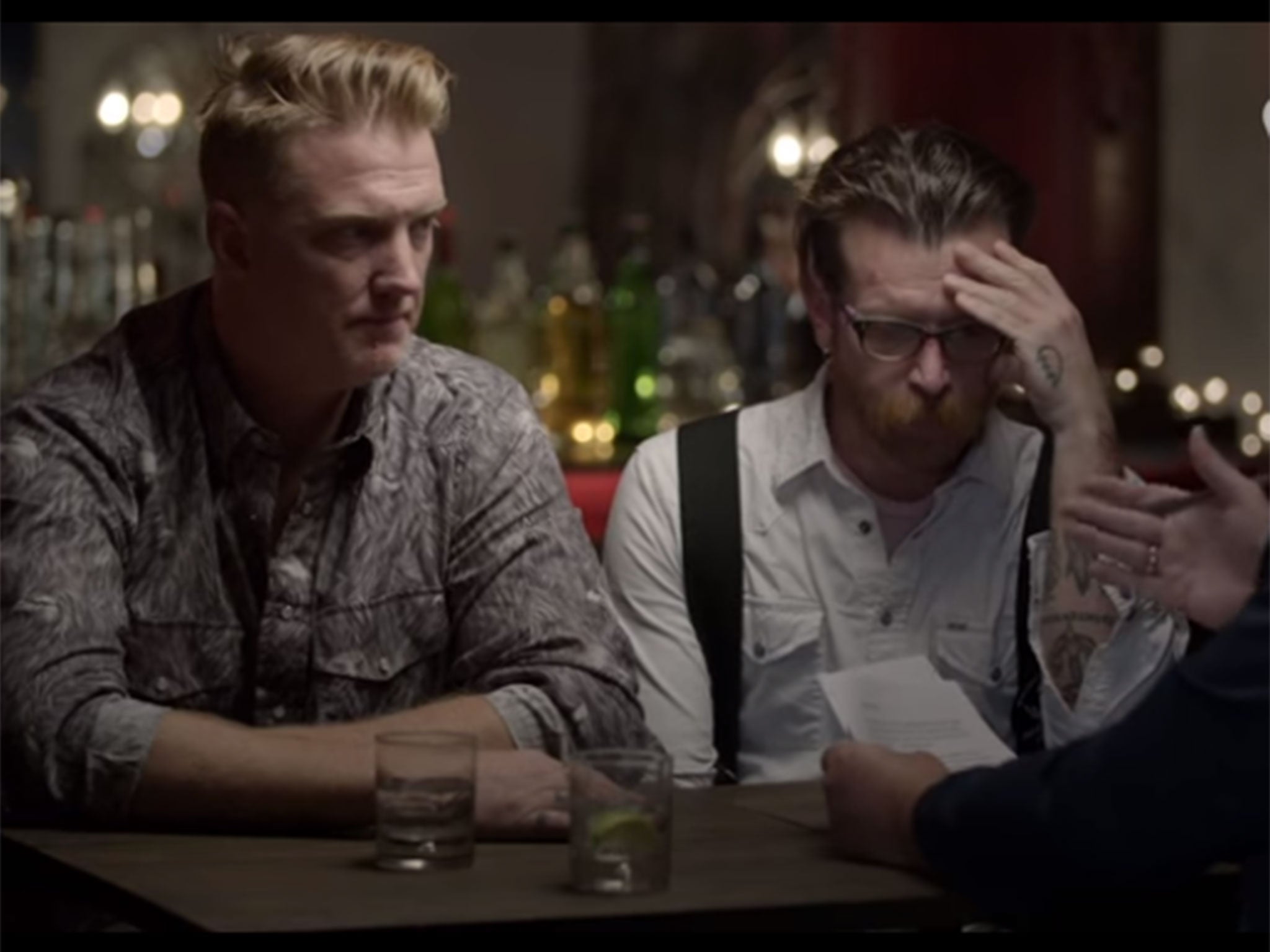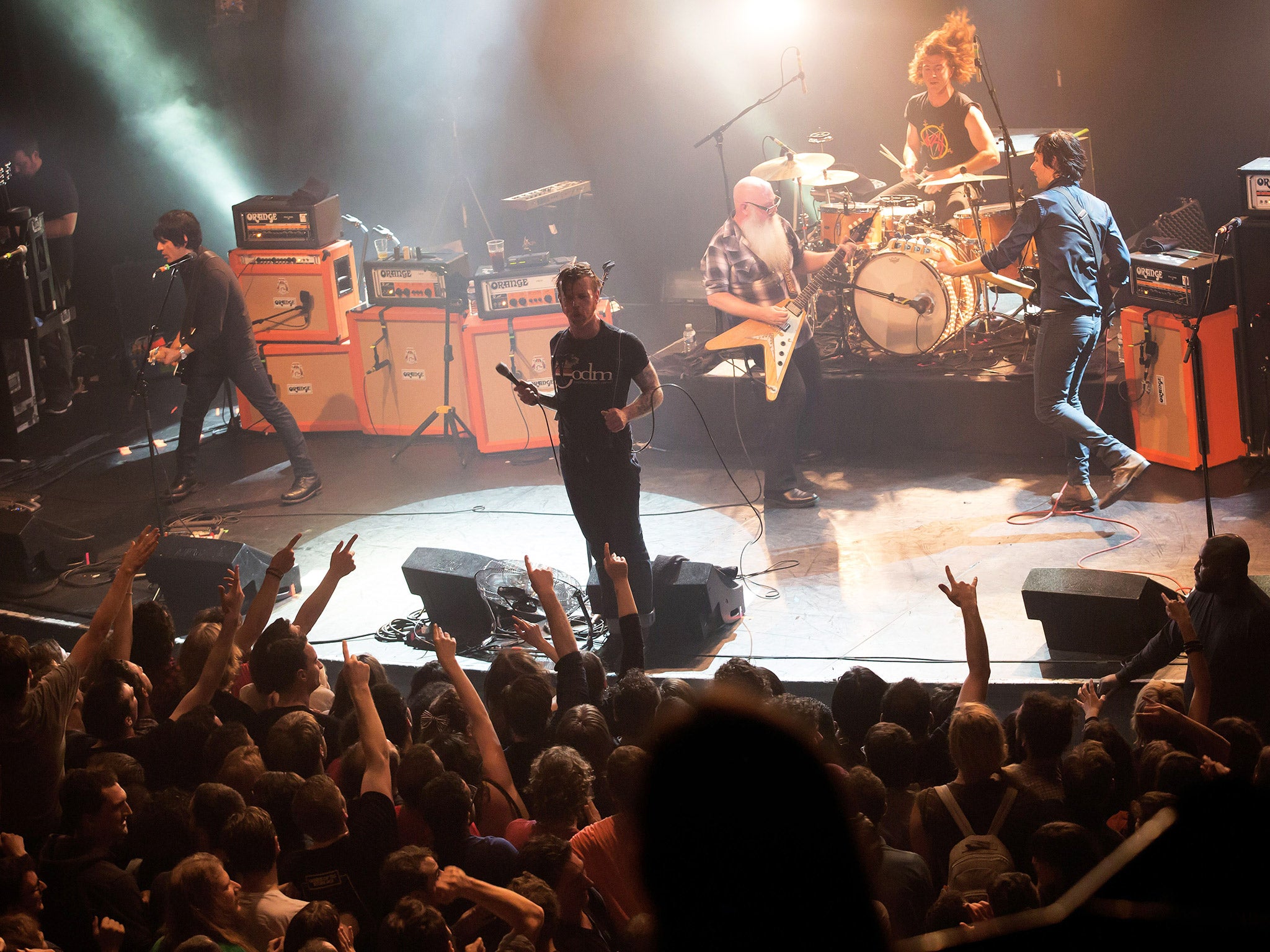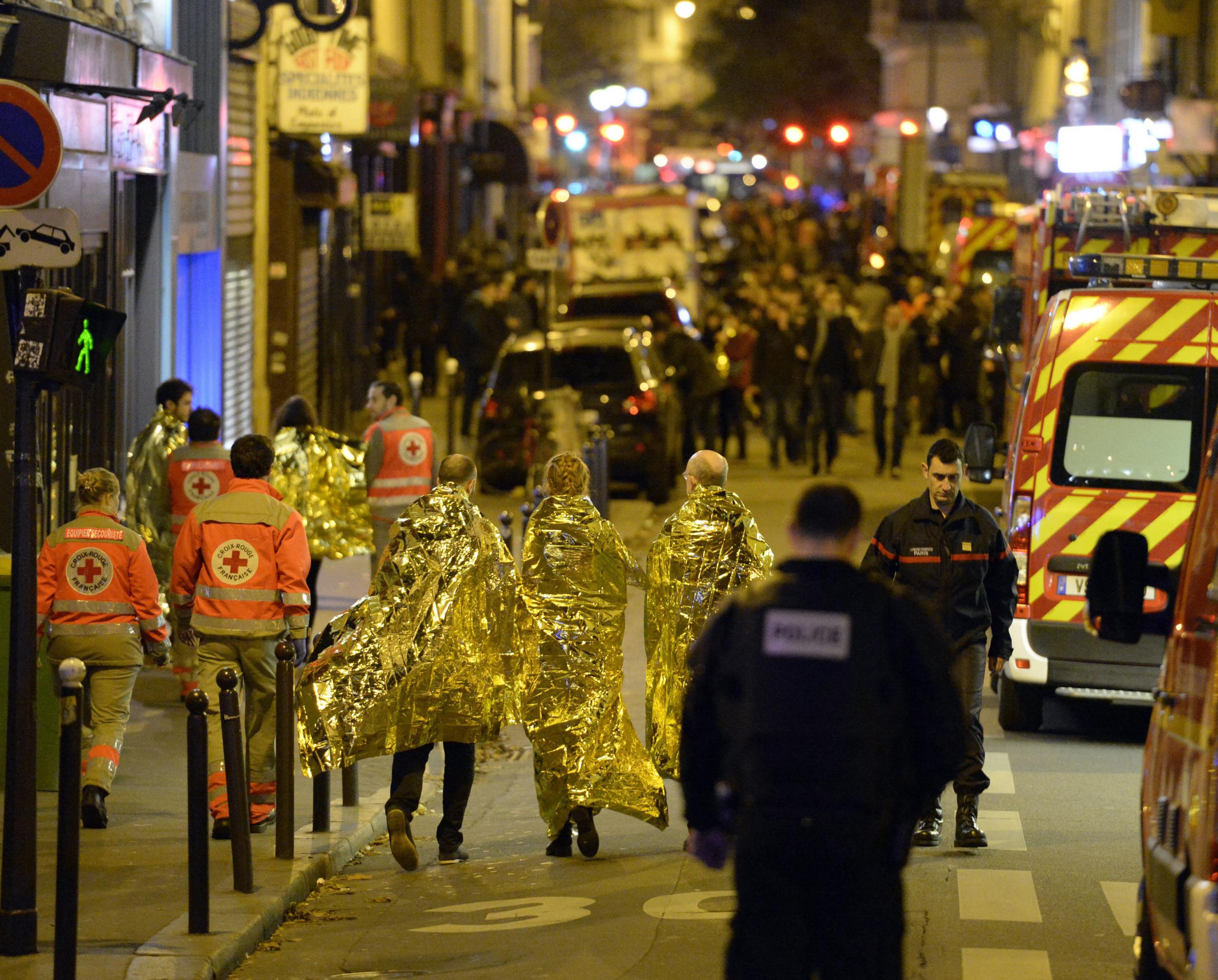Eagles of Death Metal: Paris attack victim Nick Alexander 'bled out in silence' to protect friend
The 36-year-old from Colchester didn't scream out so as to avoid attracting attention to others, the band reveals, in their first interview since the shootings in Paris

Your support helps us to tell the story
From reproductive rights to climate change to Big Tech, The Independent is on the ground when the story is developing. Whether it's investigating the financials of Elon Musk's pro-Trump PAC or producing our latest documentary, 'The A Word', which shines a light on the American women fighting for reproductive rights, we know how important it is to parse out the facts from the messaging.
At such a critical moment in US history, we need reporters on the ground. Your donation allows us to keep sending journalists to speak to both sides of the story.
The Independent is trusted by Americans across the entire political spectrum. And unlike many other quality news outlets, we choose not to lock Americans out of our reporting and analysis with paywalls. We believe quality journalism should be available to everyone, paid for by those who can afford it.
Your support makes all the difference.A British man who died in the Paris attacks “bled out” in silence to protect others, according to the band which was playing the Bataclan concert hall that night.
Nick Alexander, from Colchester, was the merchandising manager for the Eagles of Death Metal, and was shot dead when three gunmen stormed the theatre in the deadliest of the incidents in the French capital two weeks ago.
Speaking in their first interview since the atrocity played out before their eyes, members of the band told Vice their abiding memory of the attack was a “shared heroism” from the victims.
The band’s lead singer on the night, Jesse Hughes, said Mr Alexander protected a friend of his by “staying quiet and never call[ing] for help until he bled out, because he didn’t want anyone else to get hurt”.
“A great reason why so many were killed was because so many wouldn’t leave their friends,” Mr Hughes said. “So many people threw themselves in front of other people.”
Hughes and fellow band co-founder Josh Homme said they want to return to Paris “to be the first band to play in the Bataclan when it open back up”.
“We have to finish the tour,” said Homme, who wasn’t at the venue when the attack took place. “Not only for our friends and our fans, not only for Nick Alexander, not only because this is our way of life.”
Mr Alexander and three record company employees were among the 89 people killed in the Bataclan massacre. In total, 130 were killed by at least eight Isis terrorists attacking in three groups across Paris.
In the 25-minute interview, members of the band described how they were able to escape the venue unscathed – though some come within inches of being shot.
Mr Hughes, 43, said that he came face to face with one of the gunmen as he and a group of fans tried to escape down the “labyrinth”-like corridors of the venue.
“I saw the shooter,” he said. “He turned and brought the gun down on me but the barrel hit the doorframe.”
Sound engineer Shawn London was stationed near the front doors of the venue, right next to where the attackers entered.

One of the gunmen fired at least three clips while standing next to Mr London’s sound stage – and he and a number of fans escaped as the attacker reloaded.
“He looked right at me,” Mr London said. “He shot at me and missed. It hit my console and buttons went flying everywhere.”
Mr Hughes escaped down a side street along with drummer Julian Dorio and guitarist Eden Galindo.
But bassist Matt McJunkins, who can be seen in video which emerged of the incident nearer the time diving down to the other side of the stage, became trapped in a dressing room.
Fans rushed to barricade the door with chairs and armed themselves with a bottle of champagne – the closest thing to a weapon they could find.
A number of people in the room had suffered gunshot wounds, McJunkins said, including a woman who had been hit in her upper thigh.

“Her blood was running out on the ground,” he said. “There was a leak for some reason and the whole room was starting to get flooded.
“It started trickling down the stairs and we were worried that might alert someone that there were people in this room.”
The band said they wanted to reach out to anyone who was there on the night, “anyone who is recovering from hospital, if they need a phone call from us”.
And they also pledged to donate the royalties from covers of their music to the victims' families, challenging music streaming services such as iTunes and Spotify to do the same.
Join our commenting forum
Join thought-provoking conversations, follow other Independent readers and see their replies
Comments